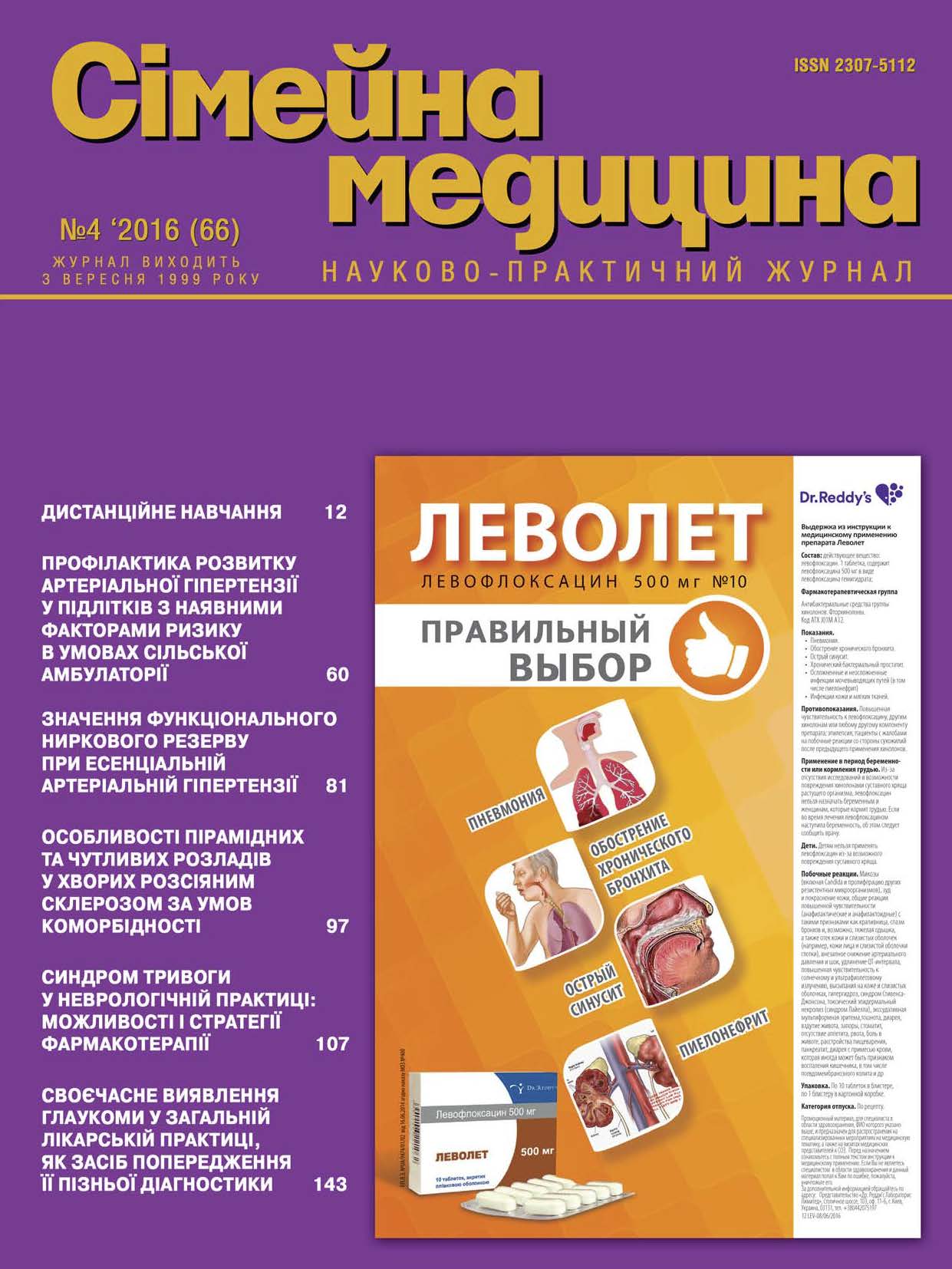Research of Quality of Life of Men of the Zhytomyr Region with the Diagnosis of a Malignant New Growth of a Prostate Gland
##plugins.themes.bootstrap3.article.main##
Abstract
The article presents the results of studying quality of life in patients with prostate cancer (PCA) men in Zhytomyr region. A sociological study was carried out using an adapted standardized questionnaire SF-36.
The purpose of the study: the study of components of quality of life of patients with prostate cancer depending on the stage of the cancer process.
Materials and methods. The patients were divided into two groups: basic (n=381) and control (n=100). The study used the classical methods of social medicine: bibliometrical, medical, statistical, and sociological.
Results. Analysis of the results of the sociological research shows that prostate cancer has a relatively long course and depending on the stage of first diagnosis of the disease and used the tactics of the patient may lead to permanent loss of sexual function. As a result of the sociological survey identified the changes that happen from the time of diagnosis of prostate cancer.
Conclusion. Information on the quality of life of patients with a diagnosis of prostate cancer is necessary to ensure communication and feedback doctors with a patient.
##plugins.themes.bootstrap3.article.details##

This work is licensed under a Creative Commons Attribution 4.0 International License.
Authors retain the copyright and grant the journal the first publication of original scientific articles under the Creative Commons Attribution 4.0 International License, which allows others to distribute work with acknowledgment of authorship and first publication in this journal.
References
Assessing Prostate Cancer Risk: Results from the Prostate Cancer Prevention Trial / Tompson, Donna Pauler Ankerst, Chen Chi [et al.] // Journal of the National Cancer Institute. – 2006. – Vol. 98, № 8. – P. 6-14.
Availability of stage at diagnosis cancer treatment delay and compliance with cancer guidelines as cancer registry indicators for cancer care in Europe. Results of EURO-CHIP-3 survey / S. Siesling, A. Gavin, P. Baili, R. Otter // Int. J. Cancer. – 2013. – Vol. 132 (12). – P. 2910-2917.
Miller A.B. Commentary: Implications of the frequent occurrence of occult carcinoma of the prostate / A.B. Miller // International Journal of Epidemiology. – 2007. – Vol. 36 (2). – P. 282-284.
Tompson Ian M. Prostate-specific antigen in the early detection of prostate cancer / Ian M. Tompson, Donna Pauler Ankerst // CMAJ. – 2007. – Vol. 176 (13). – P. 1853-1858.
Welch H.G. Prostate cancer diagnosis and treatment after the introduction of prostate-specific antigen screening: 1986–2005 / H.G. Welch, P.C. Albertsen // J. Natl. Cancer Inst. – 2009. – Vol. 101 (19). – P. 1325-1329.
Mathers C.D. Projections of global mortality and burden of disease from 2002 to 2030 / C.D. Mathers, D. Loncar // PLoS Med. – 2006. – Vol. 3. – P. 442. doi:10.1371/journal.pmed.0030442 PMID:17132052.
Effect of chronic prostatitis on angiogenic activity and serum prostate specific antigen level in bening prostatic hyperplasia / R.D. Koseoglu, F. Erdemir, B.S. Parlaktas [et al.] // Kaohsiung J. Med. Sci. – 2007. – Vol. 23(8). – P. 387-394.





